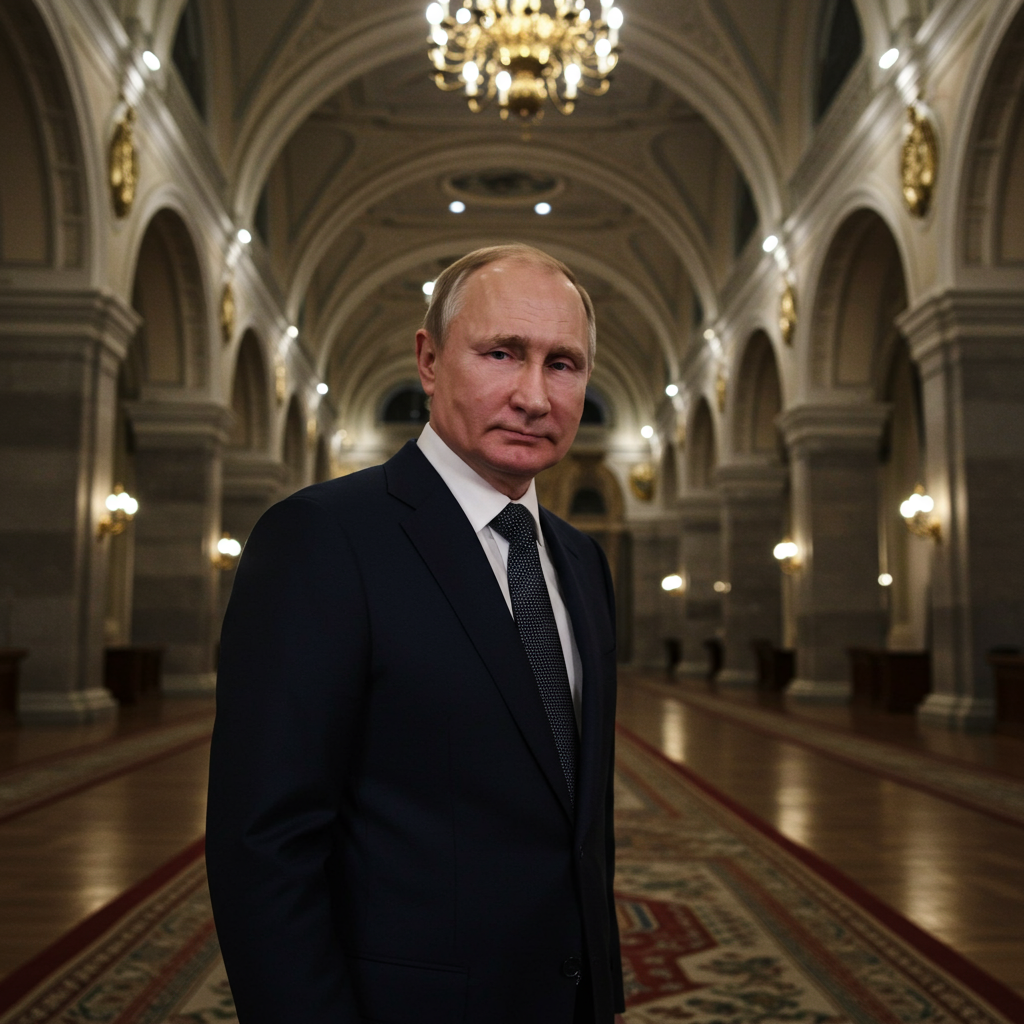A recent fortnight of intense, yet often contradictory, diplomatic activity surrounding the war in Ukraine appears to have left Moscow feeling increasingly confident, even as the prospect of peace remains frustratingly distant. This period, punctuated by unexpected statements, high-level calls, and persistent violence, underscores the complex and challenging path toward ending the conflict.
What began with an unusual late-night appearance by President Putin inside the Kremlin, where he proposed direct talks with Ukraine in Istanbul rather than taking questions, set the tone for the coming two weeks. This move followed closely on the heels of a phone call with Donald Trump and amidst a reported ultimatum from European leaders on May 10th, demanding an unconditional ceasefire within 48 hours under threat of new sanctions.
Russia’s proposal for talks in Turkey, held around May 16th, effectively sidestepped this pressure. While met with skepticism by Kyiv and Europe, the idea was sufficient to convince President Trump that Russia was serious about peace, reportedly delaying the implementation of potentially “crushing” sanctions. Despite Putin not attending the Istanbul talks and his delegation rejecting a long-term ceasefire, even these modest results were perceived by Trump as progress.
This diplomatic flurry culminated in a phone call between Trump and Putin on May 19th. While an immediate, comprehensive ceasefire remained elusive, Trump announced that Russia and Ukraine would “immediately start negotiations toward a ceasefire and, more importantly, an END to the War.” However, Russia’s actions and rhetoric suggest a different priority.
Russia’s Unwavering Stance and Strategy
Crucially, Russia maintains its refusal to agree to an unconditional, comprehensive ceasefire. It shows no intention of returning occupied Ukrainian territory, which it claims to have annexed, and instead continues to push for more gains on the ground. This strategic approach is viewed by some as a way for Russia to neutralize external pressure and “play for time.”
Adding another layer of complexity, Moscow is increasingly questioning the legitimacy of Ukrainian President Volodymyr Zelensky. Russian officials point to the expiry of his presidential term as a reason to cast doubt on signing any future peace treaty with him. Russia’s Foreign Minister Sergei Lavrov explicitly stated that deciding whether to sign a deal with Zelensky would come after an agreement is reached, suggesting that new elections in Ukraine would “probably be the best option.” This stance ignores the fact that Ukraine’s constitution prohibits elections during wartime – a state of martial law imposed precisely because of Russia’s invasion.
The Trump Factor: Rapprochement Over Pressure?
The role of former US President Donald Trump throughout this period has been particularly advantageous for Moscow, according to Russian state media. Despite past promises to end the war quickly and occasional public criticism of Putin’s actions, Trump has appeared reluctant to significantly increase pressure on the Kremlin or follow through on threats of tougher sanctions.
Instead, Trump seems focused on rebooting US-Russia relations, a sentiment reportedly echoed by Putin’s foreign policy advisor, who noted Trump’s emotional remarks about bilateral ties and viewing Russia as an “important partner.” Moscow perceives that Trump is prioritizing continued US-Russia dialogue over linking it to the Ukraine peace process. While the US Senate has threatened tough new sanctions if Russia isn’t serious about diplomacy, the Kremlin has so far successfully deflected such pressure.
Moscow’s Confidence and Media Narrative
Unsurprisingly, Russian media has framed the events of this fortnight as a significant diplomatic victory for Moscow. Outlets like Izvestia declared Russia had “won the latest round of global poker,” while Kommersant highlighted Trump’s stance as “advantageous,” supporting Russia’s “Talks first, ceasefire later” position and refusal to strengthen sanctions. Some Russian commentators have even viewed Trump as an “ideological partner.” This confidence is further bolstered by a belief in holding the initiative on the battlefield.
Violence Continues: The Reality on the Ground
However, the diplomatic maneuvering exists in stark contrast to the brutal reality of the conflict. For instance, on May 24th, just days after the flurry of talks and calls, Russia launched a major aerial attack on Kyiv involving 250 drones and 14 ballistic missiles, injuring at least 14 people and causing widespread damage. Ukraine’s air force reported downing most of the drones and several missiles.
This intense barrage occurred concurrently with significant prisoner swaps between Russia and Ukraine – humanitarian exchanges that saw hundreds of soldiers and civilians returned to both sides. Ukrainian President Zelensky reacted to the Kyiv attack by stating that such actions prove Moscow is prolonging the war and called for “additional sanctions targeting key sectors of the Russian economy.” The combined use of drones and ballistics also signals Russia’s evolving tactics.
The juxtaposition of these events – diplomatic talks and humanitarian exchanges happening alongside large-scale aerial assaults – underscores the deep disconnect between the rhetoric of negotiation and the relentless violence defining the conflict.
Peace Remains an Elusive Exit
Ultimately, the recent two weeks of diplomacy and conflict have revealed Russia’s determined strategy to use talks as a means to deflect pressure and gain time, while simultaneously pursuing its military objectives and seeking to undermine Ukraine’s government. With Russia feeling confident, sidestepping ultimatums, and receiving perceived tacit support for decoupling bilateral relations from the peace process, finding an “exit” towards a genuine peace settlement feels no closer.
References
- https://www.bbc.com/news/articles/c1w387gr30ro
- https://www.bbc.co.uk/news/articles/c1w387gr30ro
- https://www.aol.com/hectic-two-weeks-leaves-russia-230300391.html
- https://au.news.yahoo.com/russia-launches-major-aerial-attack-090738907.html




